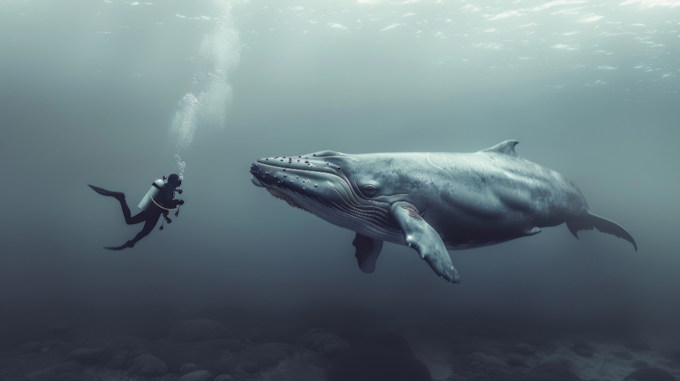A true scientific revolution is taking place in the depths of the ocean. An international team of researchers has launched the ambitious CETI (Cetacean Translation Initiative) project, aiming to decode the “language of whales” using artificial intelligence.
How It Works
Researchers have installed dozens of underwater microphones in areas where sperm whales — the largest members of the whale family — are most active. Specialized AI algorithms process thousands of hours of recordings, analyzing the tone, frequency, rhythm, and sequence of the sounds whales use to communicate.
Through machine learning, scientists have already identified more than 200 unique sound combinations, which may serve as equivalents of “words” or even “sentences.” They believe that whales convey not only warning signals or hunting coordinates, but also emotional states such as curiosity or care for their offspring.
Why It Matters
The researchers’ goal is not just to translate sounds but to create a database of whale language that could be used for two-way communication. If the experiment succeeds, humans might, for the first time in history, “speak” with another species — literally.
Moreover, this technology could help scientists better understand the behavior of marine mammals and reduce the impact of human activity on ocean ecosystems. For example, if we could “warn” whales about noisy shipping routes, it might significantly decrease the number of whale strandings and collisions.

The Team Behind the Project
The CETI initiative involves experts from Harvard University, the Massachusetts Institute of Technology (MIT), and marine researchers from Israel and Canada. The project uses powerful computing systems and underwater drones capable of recording both whale sounds and their behavioral reactions.
Scientists believe that in the near future, the technology could generate simple “whale phrases” for test dialogues with animals — such as greetings or coordination calls.
This breakthrough may become the first step toward a new era of human–nature communication — when we can truly hear the voice of the ocean.
As a reminder, ChatGPT developers unveil their own AI browser
To be continued…







Only registered users can leave comments